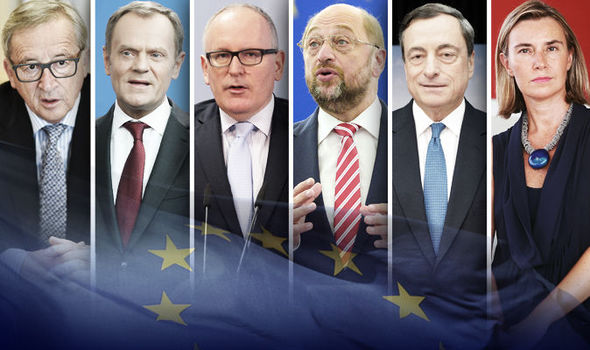New equilibrium
The battle for the top positions in the institutions is already underway

In less than a year we will have a whole new EU. No, I’m not talking about the much-needed reforms, I’m talking about the European elections that will take in the spring of 2019. In the immediate aftermath, the European Union will have to choose another president for the European Parliament and one for the European Commission, a new High Representative and, critically, a new president for the European Central Bank.
Much has evidently changed since the last elections in 2014. Just to give a few example, we had pre-brexit United Kingdom lead by David Cameron; an overwhelming social-democrat majority in France and Italy with François Hollande and Matteo Renzi, a pre-Tsipras Greece still in turmoil under Giorgios Samaras; a USA still led by Barack Obama together with some of the same as Chancellor Angela Merkel (but with a weaker GrosKo now), Orbàn (now enjoying a 2/3rd majority needed for constitutional reforms), the recently resigned Mariano Rajoy (pre Catalonian crisis) together with an extra-EU world that saw continuity with Vladimir Putin in Russia, Shinzo Abe in Japan, Xi jimping in China and Recep Tayyip Erdoğan in Turkey. In merely four years the situation has drastically changed and the European elections of next year will see (if the trend stays the same) radical change in the power balance of the political groups. Anti-establishment parties are at their historic peak, the social-democrats are in disarray, the EPP has its own internal problems and French President Emmanuel Macron still hasn’t decided where to stand.
Nevertheless, this is but a piece of the puzzle. If the Spitzenkandidat method will be confirmed, then Manfred Weber (current leader of the EPP) is a likely candidate for the role of President of the European Commission. Other strong candidates are chief negotiator for Brexit Michael Barnier and President of the IMF Christine Lagarde. It is an open secret that Angela Merkel would prefer his economic minister Peter Altmaier, in which case Weber would target the presidency of the Parliament. In the S&D camp the Slovak Maros Sefkovic is a potential candidate, together with Pierre Moscovici, the Danish Helene Thorning Smitt and the former Parliament President Martin Schulz but, given the current state of affairs of the group, it is unlikely that they will be anything more than a name-only candidacy.
For the European Council it seems the most likely at the moment is Netherlands Prime Minister Mark Rutte, in order to appease both the ALDE group and the Dutch, which have been out of top positions for a while. This coupled with the candidacy of either the German Hawk Jens Weidmann or the Finnish Erkki Liikanen for the role of Mario Draghi as the head of the BCE, would consolidate a Nordic-led duo that, coupled with the possible influence from France and Germany in the Commission and Parliament, would create more than a head-scratch for Southern and Eastern Europe.
In fact the spotlight would mainly be on Italy and Poland and their governments. While Italy is enjoying an unprecedented representation with the European Parliament President Antonio Tajani, the ECB president Mario Draghi, and the High-Representative Federica Mogherini, it is also true that all of these represent the “old” establishment that the new government vehemently fought and won against. Poland (and the rest of the east, for the matter) still suffer from that east/west divided that sees the newer member of the EU struggle to relevancy almost 15 years after they joined the block.
Clinically underrepresented, Spain secured the vice-presidency of the ECB in what somebody thought it was a move to install a hawk in the top spot and put an end to Draghi’s quantitative easing (which I bound to end anyway) and be more strict with Southern Europe. But as I said at the beginning, key role will be played by the elections and with the UK leaving in March 2019 (supposedly) and Macron’s decision for which group to join or found, a semi-revolution will take place which could put a wrench in all the official and unofficial plans for these power plays. All in all, I expect the next elections to be the most interesting to date and a real stress test for the battered establishment, will this be its swan song or will it come back with a vengeance?
